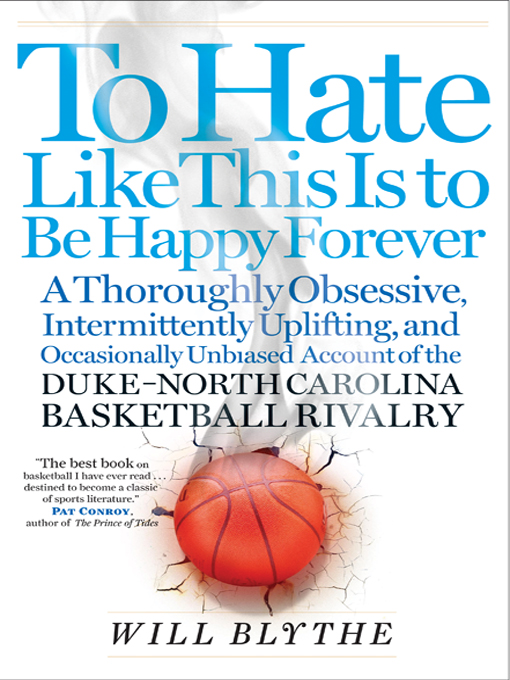 "It is a basketball rivalry that simply has no equal. Duke vs. North Carolina is Ali vs. Frazier, the Giants vs. the Dodgers, the Red Sox vs. the Yankees. Hell, it's bigger than that. This is the Democrats vs. the Republicans, the Yankees vs. the Confederates, capitalism vs. communism. All right, okay, the Life Force vs. the Death Instinct, Eros vs. Thanatos. Is that big enough?"
"It is a basketball rivalry that simply has no equal. Duke vs. North Carolina is Ali vs. Frazier, the Giants vs. the Dodgers, the Red Sox vs. the Yankees. Hell, it's bigger than that. This is the Democrats vs. the Republicans, the Yankees vs. the Confederates, capitalism vs. communism. All right, okay, the Life Force vs. the Death Instinct, Eros vs. Thanatos. Is that big enough?"
What is it about college sports that captivate us so? Is it the fact that the referees actually call traveling or that the stadium does not reverberate with pop anthems such as the Baha Men’s “Who Let The Dogs Out” whenever a star player slams in a dunk? Yes, college sports are the beginning, middle and end of what most consider “the fun years” – when teamwork is supposed to thwart individual stardom and coaches appear to genuinely be interested in the course of the overall season.
Will Blythe’s first foray into the world of books could be written by no other fan of the sport. Blythe, a former literary editor of Esquire and contributor to The New Yorker, Rolling Stone, and Oxford American, represents the essence of “sports beatnik” journalism. To Hate Like This follows the Tar Heel team through the 2004-2005 season as they attempted to win a first national title for Coach Roy Williams. ¡SPOILERS!: The Tar Heels took the title that year, resulting is a top notch analysis of the invested emotions that restored the rivalry to Tobacco Road.
Blythe does not attempt to disguise the fact that he is unbiased; in fact, he grew up in Chapel Hill watching every game with his mother and sister. When he wasn’t watching his Tar Heels, Blythe could be found in his backyard shooting hoops in his futile attempt to imitate the numerous heroes that came out of the program under Dean Smith during the late ‘70s to mid-‘90s. Blythe often refers to the side his inner hatred of everything Duke as “the Beast.” Blythe’s “Beast” comes out when he is most vulnerable (ala the presence of Duke Graduates or a late-game made Tar Heel free throw).
In order to fulfill the requirements of the book’s subtitle, Blythe travels to the arched Gothic spires of Duke University into the evil lair that is Cameron Indoor Stadium for numerous Duke Basketball games and interviews with key players such as J.J. Redick and Sheldon Williams. Blythe manages to remain civil during an interview with Coach K (just barely).
The passionate zeal the author exudes is echoed in the fans the author encountered during the writing of the book. Blythe courageously documents the activities and outlets for numerous fans such as the creator of Inside Carolina website to the restless anger that still grips Duke player Art Heyman. One such fan equates the Duke-Carolina rivalry to that of a battle for control over a certain popular fictional land typically inhabited by hobbits, elves and trolls.
Blythe’s effortless writing belies his passion towards the subject. From team practices to the biographies of Rashad McCants, Melvin Williams, Raymond Felton and Sean May, Blythe breathes a sense of reality into the often foggy fame that fandom generates. Rashad McCants took every criticism personally while Sean May dealt with the same articles in stride thanks to the advice of his father, Scott May who played at Indiana under Coach Bobby Knight.
Now that Carolina has won another national championship under the tutelage of Coach Williams it is important to understand how the most famous rivalry in all of college basketball was founded. One can only hope that Will Blythe has been secretly working on his second book since 2006 that will match the frenetic intensity found within To Hate Like This Is To Be Happy Forever.

I like that quote. However, I have a counterpoint.
ReplyDeleteI am eagerly anticipating it.
ReplyDelete